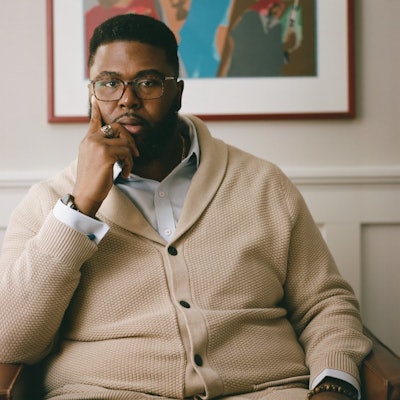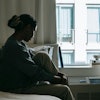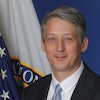Over the past few weeks, higher education has seen students vehemently express opposition to Israel’s ongoing military operations in Palestine, transforming campuses to protest zones.
Protests have been met with police force, including widespread arrests.
“Protests can be very effective at getting an issue into national media,” said Dr. Omar Wasow, an assistant professor of political science at University of California Berkeley who studies civil rights-era protests of the 1960s. “Student protests are helping to set the national news agenda."
The response by university officials to the protests has raised eyebrows and prompted fierce criticism from some scholars, who have condemned the decision by some colleges and universities to summon law enforcement.
Columbia University's President Dr. Nemat Shafik asked for the New York Police Department to break up the student encampments on the university's South Lawn, citing “safety concerns” because the protesters “interfered with the operation of the University, refused to identify themselves, refused to disperse, set up tents on campus space, failed to comply with policies, and damaged campus property.”
Student protesters there were suspended, and more than 108 were arrested for trespassing. According to NYPD, those who were arrested were peaceful and did not pose resistance.
The students have filed a federal civil rights complaint against Columbia and are calling for the school to be investigated for “discriminatory treatment of Palestinian students and their allies.”
One hundred and eight more were arrested this week near Emerson College in Boston, where protesters set up an encampment on Sunday outside the Massachusetts Transportation Building. Overnight, police cleared the tent encampment. Footage showed students being forcibly pulled and subdued by officers.
The reasoning from city fire and police was that the demonstrators were in violation of city ordinances; their tents were in an area that is public right-of-way.
Three people at California State Polytechnic University, Humboldt, were subjected to police arrest as hundreds of students and “unidentified non-students” occupied multiple campus buildings. They’ve put up barricades of furniture in the process and – much like other protests across the U.S. – are demanding that their school divest from Israel.
Cal Poly Humboldt officials have chosen to close campus through April 28, and move work and classes online. The occupation has caused “complex operational challenges,” the school explained on its website Thursday.
“In particular, there is a risk of other buildings being occupied, as protestors have shown a willingness to enter unlocked buildings and either lock themselves in, vandalize, or steal equipment,” the Cal Poly Humboldt statement read. “The occupation is also having a negative impact on other students, who are trying to complete classes at the end of the semester.
“Numerous laws have been broken, including resisting arrest, destroying and damaging property, criminal trespass, and more.”
“Hateful graffiti” has been painted on school property, according to the statement.
Los Angeles police cleared several tents and arrested 93 people at the University of Southern California on Wednesday for suspicion of trespassing. One was arrested for assault with a deadly weapon, according to LAPD.
The demonstrators there – “many of whom do not appear to be affiliated with USC” – refused to relocate to a “compliant location” and remove prohibited items but have engaged in vandalism and “physical confrontation,” according to an April 24 statement online from Dr. Andrew Guzman, provost and senior vice president for academic affairs at USC.
Riot gear and horses were employed Wednesday to drive out protesters at a pro-Palestine demonstration of more than 500 students at the University of Texas at Austin, leading to at least 34 people being arrested, including two members of news media.
"Right now, I think it's still early. But some of what we're seeing are fairly heavy-handed tactics against student protests that are peaceful,” Wasow said. “That suggests to me that the stories that will emerge in the media will tend to have an arc that puts the protesters in a more sympathetic light."
In the aftermath, UT Austin’s Faculty Council Executive Committee penned a letter to the larger campus community, in which members voiced their support for “peaceful, non-disruptive protests” and questioned the need for the school’s armed police response, calling it an “overreaction.”
Protests on college campuses are not new. They’ve historically been present. But the swiftness of these institutional “crackdowns” is worrying, said Dr. Anthony Abraham Jack, associate professor of higher education leadership at Boston University. Dr. Anthony Abraham JackChris D’Amore
Dr. Anthony Abraham JackChris D’Amore
Jack expressed concerns about outside pressures placed on higher ed institutions by politicians, pressures that resemble the scrutiny several university presidents faced from Congress last December. Last week’s arrests of camped student protesters at Columbia occurred one day after its president testified in front of Congress about antisemitism and the treatment of protesters.
"To me, universities are not actually responding to students. They're responding to people who are not on campus,” Jack said. “They're responding to politicians in D.C. who actually don't care what students have to say and what students actually are saying or how they're saying it. They're pushing a different agenda.”
Disruption and 'hypocrisy'
The rationale behind more than one of these instances of police involvement and arrest has been that protesters were hindering university operations, refusing to comply with school policies, and obstructing locations. They were being disruptive.
Amid these protests, schools including Columbia, USC, UT Austin, and Cal Poly Humboldt have all come out in support of free and political expression. But doing so while seeking to quell this disruptive behavior is antithetical to what it means to protest, said Dr. Charles Davis, assistant professor in the Center for the Study of Higher and Postsecondary Education at the University of Michigan.
“It's deeply hypocritical and counter-intuitive,” Davis said. “Protest, by definition, is intended to be disruptive ... [of] business operations as normal as it relates to institutions' research functions or their educational functions. ... This is what differentiates protest from general demonstrations or other forms of political engagement.
“You can't both reaffirm the right to protest, to engage in activism, and the desire for civic participation in society while at the same time [condemning and] criminalizing those who are engaging in those actions," he said.
Through claims of conduct policy violations and mobilization of police, institutions are trying to shift attention onto disruptive student behavior instead of their own investments and endowments, Davis said.
“What's important and emerging from the encampments is the desire to continue to refocus our attention on what's happening in Gaza,” Davis said. “I think that organizers make clear that their efforts are not to be self-aggrandizing or to center them in this conversation but that we should always be pointing our attention to the ongoing genocide that's happening in Palestine.”
Israel-Palestine conflict and U.S. involvement
Similar protests and demonstrations have emerged across the country, including at Harvard, MIT, and Tufts University. All stem from news of ongoing violence, mass displacement, tens of thousands of deaths, and rampant destruction wrought by Israeli forces on Palestinians in Gaza and the West Bank following Hamas’s attack on Israel last October.
The current Israel-Palestine conflict – part of a decades-long geopolitical situation between the two – has resulted in the deaths of 1,139 people in Israel and at least a combined 34,700 people in Gaza and the occupied West Bank, including more than 14,500 children, since October 7, according to Al Jazeera.
According to United Nations experts, in Gaza, more than 80% of schools have been damaged or destroyed, 95 university professors have been killed, and its last remaining university, Israa University, has been demolished by the Israeli military.
And if legislation is any indication, American lawmakers are showing few signs of letting up in their ongoing support of Israel. On Tuesday, the U.S. Senate – made up of 48 Democrats, 49 Republicans, and 3 Independents – passed a bill with a 79-18 vote that would send $26 billion to assist Israel and provide humanitarian aid for Gaza.
But notably, the bill – which President Biden signed on Wednesday – allocates most of the $26 billion, $17 billion to be exact, for the funding of Israeli weaponry and military use. Meanwhile, approximately $1 billion will go toward relief, food, medical supplies, and clean water in Gaza.
In remarks Wednesday, Biden said that Israel had the right to defend itself against Hamas and that the military funding will help Israel replenish air defenses after Iran’s drone attack on the country this month.
The late Rev. Dr. Martin Luther King Jr., universally renowned civil rights and political activist, said it best in his last speech, “I’ve Been to the Mountaintop,” Jack said.
“Somewhere I read of the freedom of assembly,” King voiced on April 3, 1968, a day before he was assassinated. “Somewhere I read of the freedom of speech. Somewhere I read of the freedom of the press. Somewhere I read that the greatness of America is the right to protest for right.”
Jack asked: “When did we lose that?”















